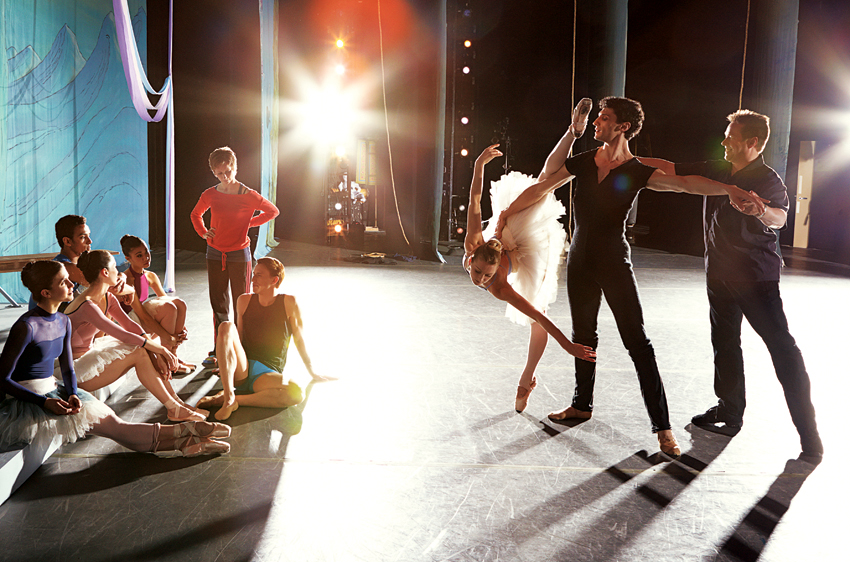The Rainmaker of the Boston Ballet Is Leaving

Photograph by Finlay MacKay for “Turning Point“
Two weeks after launching its 50th anniversary season, Boston Ballet announced that executive director Barry Hughson will leave in January to become the executive director of the National Ballet of Canada, citing personal reasons including his wife’s career.
Boston Ballet’s artistic director Mikko Nissinen told the Globe on Friday that Hughson’s exit “came as a surprise.” Hughson joined just when the company seemed poised to collapse: From March 2008 until Hughson’s arrival in June 2009, Nissinen slogged through 16-hour days as both artistic and executive director of a company that had lost its home at the Wang Theater and dove $8 million into debt.
Then came the turnaround. During his tenure, Hughson led the $10 Clean Slate Fund, which cleared the company’s structural deficit and financed both a $3 million renovation to its South End studio and international tours. He leaves the fourth-largest ballet troupe in the country debt-free and in the midst of its most heralded season to date—full of tours to London, Washington, D.C., and New York City—and world premieres in Boston. By these measures, it’s high time to go out on top.
When I met with Hughson for a story on the company’s artistic and financial turnaround in this month’s Boston magazine, the Connecticut native seemed in no rush to leave. When Boston Ballet recruited him in 2009, he was executive director of Atlanta Ballet, leading the largest capital campaign in its history, and living in a recently purchased home with his wife, who was pregnant with their second child. “There wasn’t much incentive to leave. There’s probably no place on earth that I would have moved to other than Boston,” he said at the time.
“The opportunity to step in at a time when the company was emerging from challenges and to really be part of the leadership team that could take it forward was clearly irresistible,” he continued.
He leaves the company in superb standing, but was there nothing left to achieve in Boston?
Compared with other departures in Boston Ballet’s history, Hughson’s is hardly scandalous or alarming. In 2000, would-be artistic director Maina Gielgud quit before even arriving to the city, citing arguments with the administration, which never presented her a final budget. Hughson’s predecessor, Valerie Wilder, left at the onset of the recession, just as the company agreed to cut 20 percent of its dancers.
But Hughson’s exit still casts uncertainty on the company. His announcement came a day after the 70-year-old New York City Opera filed for bankruptcy, another reminder of the arts’ fragility today. Boston Ballet’s endowment now stands at $10 million, “which, on a $30 million budget, is now an endowment,” Hughson told me. He and Nissinen were in the beginning planning stages of a massive campaign to strengthen the endowment, so that, in Hughson’s words, “the company will thrive long after we’re both gone.”
Nissinen, whose contract expires next year, told the Globe he’ll look “everywhere but Mars” for a successor, which he hopes to name between March and July 2014. If Nissinen wants to find a rainmaker to meet his and Hughson’s vision of a secure top international company, he may just need a spaceship.


